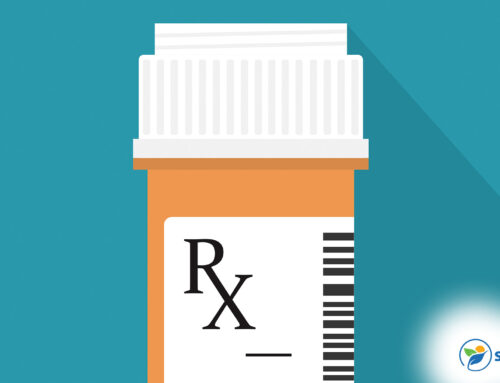Getting treatment for mental health conditions and substance abuse addiction can be life-changing. However, rehabilitation cost is a barrier that some people feel they can’t overcome. Sadly, the cost of rehab without insurance is high, and the price tag can feel like a deterrent.
But there will always be reasons to avoid professional help. In reality, there’s a solution for almost every barrier to rehab. And luckily, when it comes to rehab costs, there are plenty of possible cost-reducing options.
6 Tips for Handling Rehabilitation Cost
Don’t let something like financial concerns stop you from getting the help you need to change your life. Here are six tips on how to afford your future rehabilitation cost.
1. Financial Assistance
There are financial assistance options for covering the price of treatment, including covering the cost of inpatient drug rehab, outpatient programs and mental health treatment.
Some rehabilitation centers will offer financial assistance options that spread the program’s cost over manageable, affordable payments. Note that you’ll typically pay interest (and potentially fees) on these payment plans, so it’s best to finance as little as possible and pay it off quickly.
If your rehabilitation of choice doesn’t offer internal financial assistance services, there are other options. Some financial assistance options for substance abuse programs include:
- Substance Abuse and Mental Health Services Administration (SAMHSA) grants
- Medicare and Medicaid
- The Affordable Care Act (ACA)
Exploring all options is essential to understand what you qualify for. You might be entitled to a lot more financial assistance than you may realize!
2. Insurance Coverage
Many insurance plans cover some (or most) mental health and substance abuse treatment programs. If you already have an insurance provider, contact them directly to better understand your existing insurance coverage. Knowing your coverage can help you determine which type of program you may enroll in. For example, you may choose to enroll in an outpatient care program if your insurance doesn’t cover inpatient fees.
Worried because you don’t have insurance? You’re not alone. In 2021, 27.2 million Americans didn’t have insurance coverage at any point during the year. If you’ve never had insurance coverage before, now’s the time to research plans. You may be surprised by how affordable it can be.
And if you don’t have insurance that covers rehabilitation treatment, the good news is that it’s not too late to sign up. You can switch providers (or sign up for insurance) so you specifically have a plan that covers rehab. Just make sure to read the fine print of your plan’s details so you truly understand what type of coverage you’ll receive.
3. Community Resources & Sliding Scales
Utilizing community resources and sliding-scale payment options is a great idea. Some community charities and nonprofits offer sponsorship programs to help individuals afford treatment. Additionally, some rehabilitation facilities offer sliding scales. A sliding scale program allows low-income individuals to pay less for services. However, you’ll have to inquire about a sliding scale before signing up with a rehabilitation center, as many don’t offer this option.
4. Low-Cost Options
If you know the cost will be an issue for you, consider researching some low-cost rehabilitation centers in your area. Some rehabilitation centers are more upscale than others, so finding one that offers the basics might be a more appropriate option for someone on a budget.
Also, remember that you don’t have to go for the most expensive program the treatment facility offers. For example, residential treatment programs often cost more because they include food, housing and 24/7 monitoring. As a result, someone looking to reduce costs might choose the outpatient program instead.
5. Free Therapy and Group Counseling
Another way to reduce costs is to seek free or low-cost therapy and group counseling. Groups like Alcoholics Anonymous (AA) and Narcotics Anonymous (NA) are free to join. While these aren’t replacements for progressional treatment, they can be great accompaniments to treatment. You can also consider relying on free therapy or group counseling for support until you can afford rehab.
6. Consider Budgeting
It might be time to ask yourself if you’re really unable to afford rehab or if that’s just an excuse. Consider writing out a budget for all your expenses and seeing if there’s room for cutbacks. Some simple changes like cutting out takeout, entertainment subscriptions and shopping might be all you need to afford the extra rehab expense.
Still, this isn’t the case for everyone. For some, more drastic measures might be necessary, like becoming a one-car household or moving to a smaller, cheaper apartment. However, it’s worth sacrificing now if it means you or your loved one gets the help they need.
Prioritizing mental health and creating a budget for treatment is the best thing you can do for yourself.
Looking Ahead: Advocacy for Policy Change
No one should have to delay getting help because they’re worried about the financial side of things. Regardless of whether you can afford rehab, we should all advocate for a better system. Consider calling your state politicians and requesting policy changes to improve access to affordable mental health and substance abuse treatment. Change might take time, but if enough people speak up, we can see a difference made.
Don’t Put Your Health and Happiness on the Back Burner
Going to rehab is one of the most important decisions of your life. Professional treatment can help get you back on track and live a fulfilling life. Ultimately, expenses shouldn’t stand in the way of getting the support you need.
Remember that there are options if you feel you can’t afford rehabilitation. Don’t convince yourself that a price tag is a barrier when it doesn’t have to be.
Sunlight Recovery Offers Help
Ready to get professional help but need to know if you can afford it? Contact Sunlight Recovery today; our friendly staff will walk you through your options. We’ll help you understand our programs and their different price structures, check your insurance coverage and determine a plan that allows you to afford rehab. Contact us today to get started.






